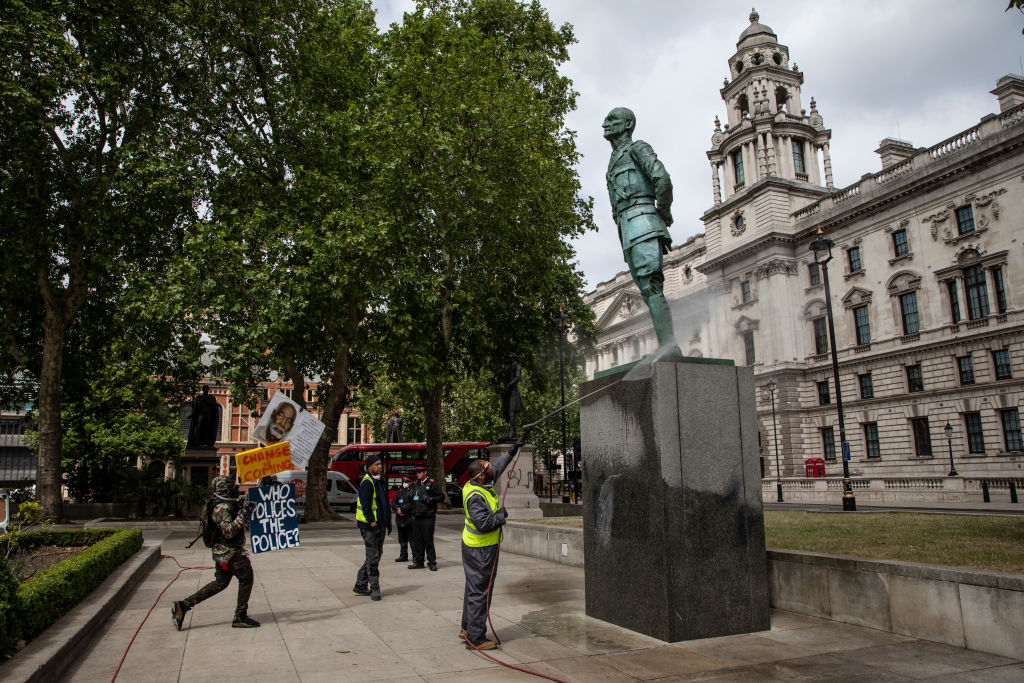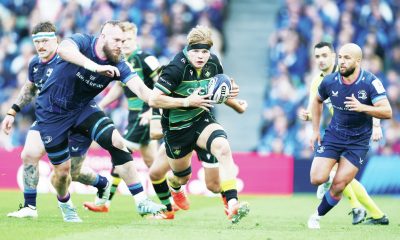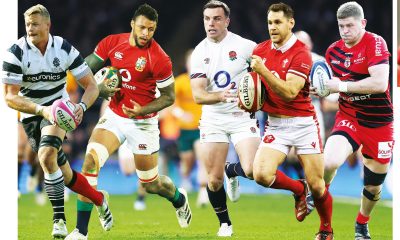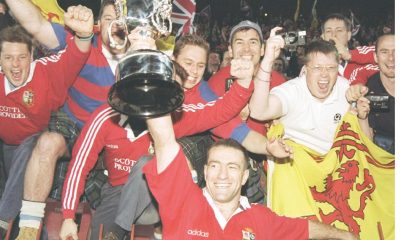
Rugby, the winter sport of choice of many middle and upper class white males from the moment William Webb Ellis picked up the ball and ran in 1823, has often had to grapple with the big issues in society, not least those concerning the old British Empire.
For many decades it was alas the wrong side of the apartheid debate, maintaining close sporting relations with old friends in South Africa and providing succour to their hateful regime. It is a stain on rugby’s history although the sport then went a long way to redeeming itself with the triumphant staging of RWC1995 and the glorious nation defining events that ensued.
During this last week other uncomfortable aspects of rugby’s heritage have reared their head and we should not bury ours in the sand. It’s largely been a tale of two statues.
Those of you watching the dramatic ripping down of Edward Colston’s statue in Bristol last week may have recognised the name in a rugby context without being aware of his infamy.
It was Colston, the richest and most ruthless of all the slave traders, who founded Colston’s College in 1710 on the proceeds of his monstrous business and in modern days Colston’s have been among the strongest rugby-playing schools in Britain.
Colston’s won the Daily Mail U18 Cup on seven occasions including six in a row between 1995 and 2000. Over 50 old boys have played top tier rugby including the likes of Callum Braley, Jake Polledri, Olly Barkley, Jordan Crane, Shane Geraghty, Lee Mears, Tom Varndell and England women’s centre Amber Reed.
Now 1710 is a long time ago, another world, and the modern generation of teachers and pupils will be as outraged at Edward Colston as the rest of us but we shouldn’t turn our backs on the full story.
Then we come to the Rhodes Trust at Oxford University, set up by Cecil Rhodes who became the world’s richest man by the end of the 19th century. Rhodes owned diamond and gold mines in South Africa which led to a more general exploitation of southern Africa and its indigenous peoples. Protestors also want his statue at Oriel College Oxford removed and have been voicing that view for many years now.
Rhodes, like Colston, became a massive philanthropist. The Rhodes Trust was set up in 1902 on his death with £1m being set aside for an educational trust at Oxford University to promote unity among English speaking nations although that was later extended to all nationalities. It is now worth at least £200m and funds the academic and living costs of up to 90 new award winners every year.
Again rugby needs to take note. Over the decades various Oxford XVs have benefitted massively from a conveyor belt of accomplished internationals and Rhodes scholars from New Zealand, Australia and South Africa.
In rugby terms the Rhodes scholar almost became a cliché. If ever Oxford suffered a run of defeats in the Varsity match, an unofficial recruitment drive for rugby playing scholars was undertaken in the colonies. In 1929, when Oxford ended a run of four straight wins by an all- star Cambridge XV, the Dark Blues fielded no fewer than five Rhodes scholars in their pack.
Some of the greatest names in the history of Oxford rugby have been Rhodes scholars. There have been South Africans such as Tuppy Owen Smith, who played cricket for South Africa and rugby for Oxford and England, while there was Hubert ‘Trilby’ Freakes who had broken in to the England side just before WW2 in which he was killed in 1942.
Ossie Newton-Thompson was a South African-reared scrum-half who was a spitfire pilot during the War and captained Oxford in 1946 partnering New Zealand cricket legend Martin Donnelly at half-back. Future Springboks captain Tommy Bedford made a big splash while at Oxford in the 60s as did the McDonald brothers – Dugald and Donald – from Diocesan College Cape Town in the 1970s.
As for the Kiwis there was scrum-half Chris Laidlaw who, at the height of his career took three years out to study geography and to captain the University side. Another brilliant All Black scrum-half Dave Kirk, the World Cup-winning captain from 1987, took advantage of the scholarship soon after and won Blues that year and 1988.
Aussies? Basil “Jika” Travers was a rumbustious lock who has served as Brigade Major in Papua New Guinea before travelling to New College in 1947 where he took a degree in PPE, followed by a Masters and won two Blues at No.8 and won six England caps. World Cup winner Joe Roff was a Rhodes scholar and, as recently as 2014, Oxford were captained by an Australian Rhodes scholar, flying wing Jacob Taylor.
Americans also. Peter Dawkins was a West Pointer who was voted both best young American Footballer (Heisman award) and best rugby player (Maxwell award) prior to studying PPE at Brasenose from 1959 onwards. Dawkins won three Blues and is credited with introducing the torpedo throw at the line-out which is now the norm throughout the rugby world.
Nothing can change the past and you could equally point out that a succession of eminent world leaders, not least Bill Clinton, were also Rhodes scholars. It’s right though, as the world takes stock a little, for rugby to do likewise.


British and Irish Lions
Charlie Elliott: The 17 backs I would select for the British and Irish Lions

British and Irish Lions
Charlie Elliott: The 21 forwards I would select for the British and Irish Lions squad

























You must be logged in to post a comment Login